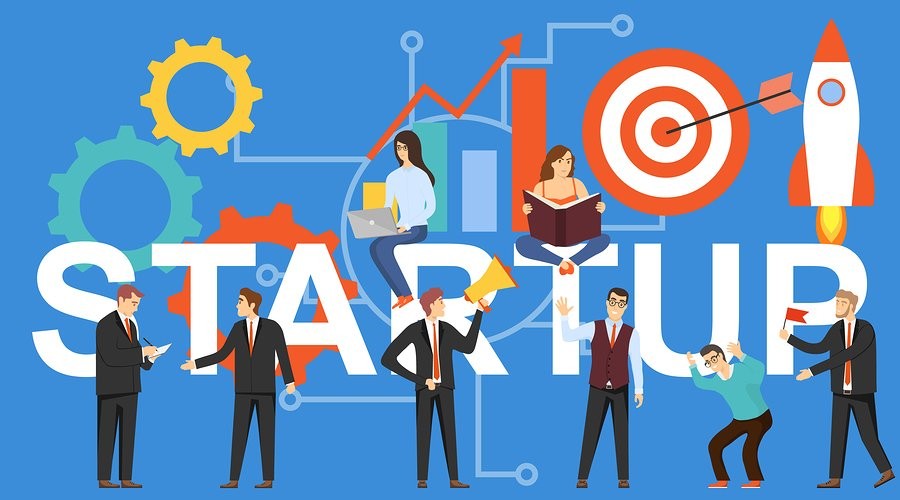Startups have become the driving force behind innovation and disruption in multiple industries. With the rise of technology, entrepreneurial spirit, and access to venture capital, startups have reshaped how businesses operate and interact with consumers. These new businesses not only provide fresh solutions but also challenge traditional business models. Here’s a closer look at the startup ecosystem, the categories it encompasses, and the impact it has on the global economy.
What is a Startup?
A startup is a newly established company designed to grow quickly, often centered around an innovative product or service. These businesses typically face high uncertainty but aim for rapid scalability and often disrupt established industries. Startups stand apart from traditional companies by their pursuit of exponential growth, technological innovation, and sometimes non-traditional business models.
Key Categories of Startups
Startups exist across numerous sectors, each targeting specific needs and challenges. Here are some of the most influential categories:
1. Tech Startups
Tech startups are arguably the most prominent and diverse category. These companies focus on creating software, platforms, and products that utilize advanced technologies like AI, machine learning, and blockchain. Tech startups are highly scalable and cater to both B2B (business-to-business) and B2C (business-to-consumer) models.
Notable Examples:
-
Uber revolutionized transportation with ride-sharing.
-
Airbnb transformed the hospitality industry by connecting homeowners with travelers.
-
Stripe streamlined online payments for businesses.
2. HealthTech Startups
HealthTech startups use technology to improve healthcare services, enhance patient care, and provide innovative solutions for medical professionals. The COVID-19 pandemic accelerated the growth of telemedicine and digital health solutions, which have now become staples in modern healthcare.
Notable Examples:
-
Teladoc Health allows patients to consult with doctors remotely.
-
Tempus uses data analytics to enhance cancer treatment.
3. FinTech Startups
The financial technology (FinTech) sector has revolutionized the way people manage and access financial services. FinTech startups offer innovative solutions for payments, lending, insurance, and digital currencies, often providing more convenient and lower-cost alternatives to traditional banks.
Notable Examples:
-
Square simplified point-of-sale solutions for small businesses.
-
Robinhood offered commission-free stock trading.
4. EdTech Startups
Education technology (EdTech) startups focus on improving the quality and accessibility of education. Whether through e-learning platforms or digital tools, these startups aim to make learning more interactive, personalized, and available to a global audience.
Notable Examples:
-
Duolingo makes language learning fun through gamification.
-
Coursera partners with universities to provide online courses and certifications.
5. Sustainability Startups
Environmental concerns are driving the growth of sustainability-focused startups. These companies are developing technologies and services that reduce carbon footprints, improve energy efficiency, and create eco-friendly alternatives to traditional practices.
Notable Examples:
-
Tesla leads the way in electric vehicles and renewable energy.
-
Impossible Foods creates plant-based meat alternatives to reduce the environmental impact of farming.
6. Consumer Goods Startups
These startups focus on creating products that meet consumer demands while emphasizing innovation and design. From fashion to beauty products, these companies cater to diverse markets by providing more personalized and unique offerings.
Notable Examples:
-
Glossier turned social media influence into a major beauty brand.
-
Warby Parker revolutionized eyewear by offering affordable glasses through an online platform.
7. E-commerce Startups
E-commerce startups have reshaped the retail industry, making it easier for consumers to shop online and access global markets. These startups focus on improving user experience, leveraging AI for personalized shopping, and creating innovative online marketplaces.
Notable Examples:
-
Shopify empowers entrepreneurs to create and manage their own e-commerce businesses.
-
Glossier also exemplifies direct-to-consumer success in the beauty industry.
The Challenges Faced by Startups
While startups offer great promise, they also face considerable challenges, including:
-
Funding: Securing capital remains one of the biggest hurdles. Many startups rely on venture capital, angel investors, or crowdfunding to fuel their growth.
-
Competition: The startup world is competitive, with both emerging and established companies vying for market share.
-
Regulations: Industries like healthcare, finance, and energy can face strict regulations that impede their growth potential.
-
Talent Acquisition: Attracting skilled talent can be a challenge, as startups must compete with larger companies that offer more stability and resources.
The Future of Startups
The future of startups is incredibly bright, with emerging technologies like artificial intelligence, blockchain, and biotechnology opening up new frontiers for innovation. The trend toward remote work and digital solutions has also leveled the playing field, allowing startups to grow from anywhere in the world. As more entrepreneurs launch their businesses and venture capital continues to flow, the startup ecosystem will likely remain a major driver of economic growth.
Conclusion
Startups are reshaping industries and transforming our world in ways we never imagined a decade ago. From technology to sustainability, these companies are pushing boundaries and offering new solutions to long-standing problems. The startup ecosystem has become a hub of innovation, driving change across sectors and encouraging a new wave of entrepreneurship. While challenges remain, the potential within the startup ecosystem to disrupt markets and deliver consumer value is limitless. As the entrepreneurial spirit continues to thrive, the future of the startup ecosystem looks more exciting than ever.


















